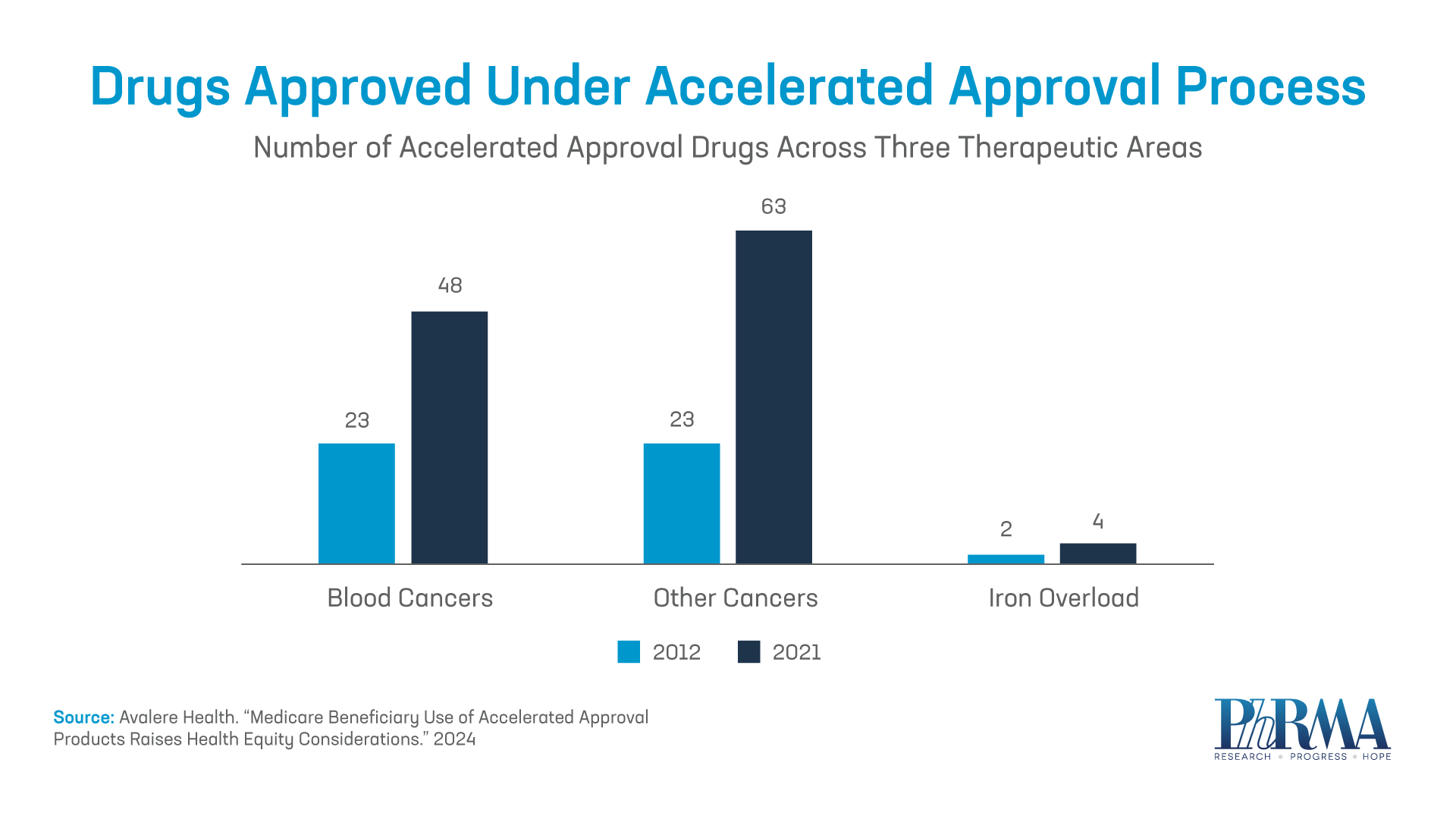Medicare beneficiaries from underserved communities with certain life-threatening diseases and few other options are gaining access to innovative medicines because of the accelerated approval pathway, according to a new analysis conducted by Avalere.
Details: Relying on data from the U.S. Food and Drug Administration (FDA) and the Centers for Medicare & Medicaid Services, Avalere looked at treatments across three disease areas with accelerated approval between 2012 and 2021 and how those treatments are being used by Medicare beneficiaries.
Key findings from the analysis include:
The accelerated approval pathway is driving medical progress for patients with cancers and blood disorders. The number of accelerated approval medicines for blood cancers grew from 23 treatments in 2012 to 48 in 2021 — a 109% increase. The number of available treatments with accelerated approval nearly tripled for other forms of cancer (up from 23 treatments to 63) and doubled for certain blood disorders (up from two treatments to four) such as beta thalassemia and sickle cell disease.

Patients in urban areas are far more likely to have access to treatments with accelerated approval. People living in urban areas are eight times more likely to have to access to new cancer treatments with accelerated approval than their peers living in rural areas. For patients with certain blood disorders who receive a drug for iron overload, those living in urban communities are 14 times more likely to receive accelerated approval treatments than patients living in rural areas.
The accelerated approval pathway is delivering more treatment options to historically underserved patients. While a majority (73%) of all Medicare beneficiaries relying on the analyzed accelerated approval treatments were white, those receiving treatments for iron overload disorders were predominately from Black or Asian communities and dual-eligible beneficiaries (i.e., individuals receiving Medicare and Medicaid benefits). As the study notes, accelerated approval is providing treatments for beneficiaries “who are disproportionately affected by these conditions,” which can “lead to improved clinical outcomes for patients with unmet medical needs.”
The accelerated approval pathway is making a positive difference in the lives of people facing life-threatening diseases and closing gaps in care for underserved communities. The Avalere analysis only seeks to serve as another reminder of how the accelerated approval program improves the lives of patients and why it deserves continued support.
Learn more about accelerated approval.




